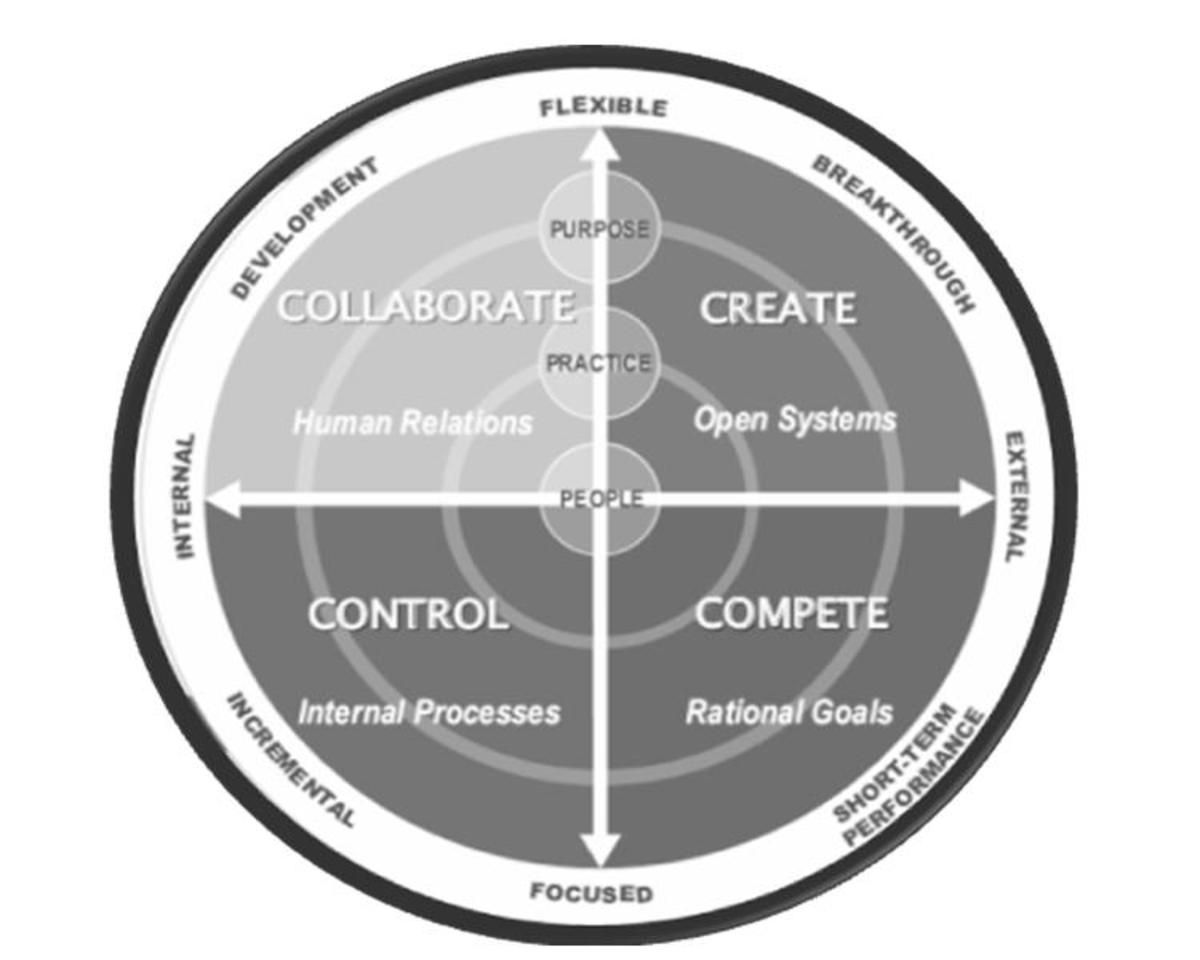Organize or Perish. Is this our Choice?
Are we well organized?

Why we Organize Ourselves
Organizational structures developed from the ancient times of hunters and collectors in tribal organizations through highly royal and clerical power structures to industrial structures and today's post-industrial establishments. Our society too is organized in a similar manner.
This structure provides the foundation on which standard operating procedures and routines rest. It also determines which individuals get to participate in which decision-making processes, and thus to what extent different individuals’ views shape the organization’s actions.

Ways to Organize
The authority the organization wields can be of a) charismatic authority (character, heroism, leadership, religious), b) traditional authority (patriarchs, patrimonialism, feudalism) and, c) legal authority (modern law and state, bureaucracy). Nowadays, with the advent of instant worldwide communication, essential free information, and the ability of large numbers of people to organize and collaborate without hierarchy, creativity as well as innovation is moving far more rapidly than it can through a traditional organization.
One common character of all these arrangements is that there exists a common thread, controlling these in their practical domain. Functional control takes place in two different scenarios, in the following manner, irrespective of the styles, authority or other nuances of the organization.
Scenario A: Highly qualified and learned people are selected to formulate policies and strategies for the organization, or for the society. Such people head the organization. And those who are relatively weak, especially in the intellectual domain, are given the task to implement the policies and strategies.
Scenario B: People are selected at random, looking only at their affinity for the job, and are asked to formulate policies and strategies. And those who are highly qualified and learned are chosen to implement these.
Now let us see what really happens in each case.
How do I fare
Human society needs reorganization

How Do they Compare
In scenario A, undoubtedly, the best policies shall get instituted. But when these are transferred to the people responsible for implementation of the same, things wouldn’t be going well. A lack of skill, or an absence of talent would be visible in dovetailing the different requirements, like environmental, social, economical or political considerations, while the plans are being followed through. Those responsible for this, invariably sees this as a result of insufficient attention to planning, primarily because they lack the intellectual wealth necessary for a dispassionate assessment. In democracies, this gets compounded further. Those, who made the plan and those who found this lacunae would have been from different political dispensations, and a rivalry between them feeds the desire of one-upmanship. Ultimately, though it is based on a well thought out policy, the people suffer.
Whereas in scenario B, the policies that get instituted may not be the best. But when these are transferred to the people, who are responsible for putting these policies to practice, things would get corrected in its execution. As, in this scenario, the people responsible for dovetailing the array of requirements, like environmental, social, economical or political considerations, do belong to the better lot. Hence, in this case, things shall get smoothened out, while the plans are being followed through. Those having overall responsibility for this can find that both the planning and the execution have been given sufficient attention. Ultimately, though it is based on a plan for implementation that may not be the best, people stand to benefit the most.
What is there to learn from this? That we need to review the present organization of our organizations. Specifically, the way we allocate our talents to different levels of jobs.

Is Our Choice Right?
Presently those who are better qualified and experienced look after higher level tasks like planning. All those who are directly dealing with the jobs involved with the execution of plans are the less qualified ones. As we saw above in the case of scenario A, this leaves us with much of unfinished tasks (that leads to, washing dirty linen in public!) due insufficient attention at various stages of execution. We are closing our eyes to this, calling it part of human nature, and harp on the need to have better ethical outlook, pointing to the need of a spiritual dimension to life.
Suppose humans organized their organizations as we saw above in scenario B. Naturally, those performing jobs of executing the tasks being people of high caliber, we can expect a full, hundred percent completion of jobs. For the same reason, these people can also be expected to overcome shortfalls in all other activities. Thus, if planning is found to be inadequate to meet the ends, which is possible with this kind of talent distribution, the style of completing the work shall get appropriately altered.
The inadequacy of our organization should have been clear to us by now, having seen wars and calamities on a regular scale. Not only that, the superiority of the latter scenario should have been clear and obvious, having experimented with such issues quite often. However, we neither thought of organizing our society to fit into such a picture, nor did we realize the very existence of such variants. Humans have shown great interest in journeying to the extremes of whatever they do, and discover new vistas of knowledge, if nothing else. But, they haven’t moved even one bit away from the first, age old approach, as far as these issues are concerned. We still continue with the same arrangement in our society, routinely adding new elements of structural and functional change, to account for the stream of failures encountered.
Why didn’t we choose the better way to organize ourselves? Can there be a reason, other than that we want to constantly derive the pleasure of re-organizing ourselves?









